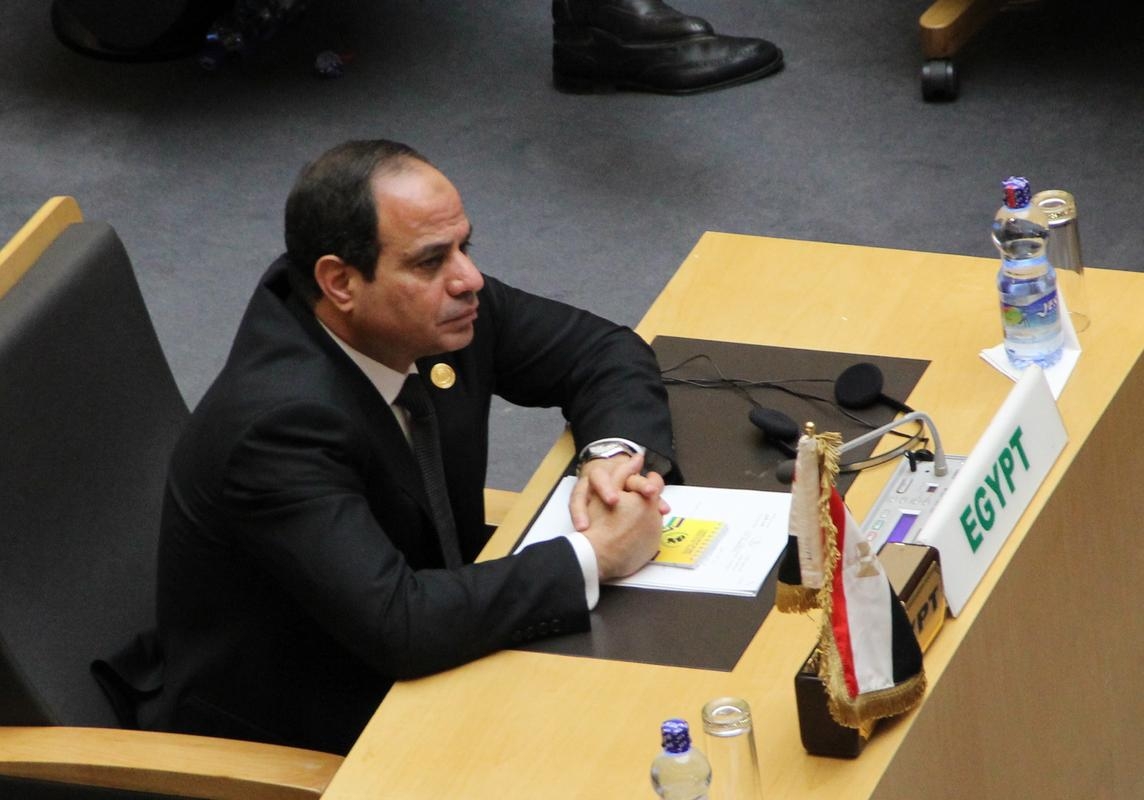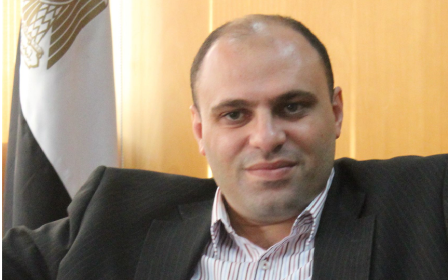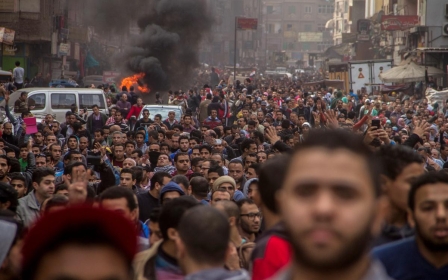Drastic reform needed to save Egypt's economy

Four years on from the mass popular revolts of early 2011, Egypt's economy is still struggling to meet the needs of its population and, without deep reforms, the problems aren't going anywhere, according to activists, analysts and academics.
“The economic decline of the last few years has had a devastating effect on ordinary Egyptians,” Nadim Mansour, the director of the Egyptian Center for Economic and Social Rights, told MEE this week.
“We are now in a very risky situation economically where small and medium-sized employers have really suffered for a long time and everyone can see that the poverty rate is accelerating. It is clear.”
Political turbulence and repression, he argued, have made it very hard for companies of any size to invest in the country and the corruption and inefficiency of the Mubarak years has not been tackled.
“It will be very dangerous if we don't have some serious economic reforms for more transparency, efficiency in the public sector, and less bureaucracy,” Mansour said, “because most of the protests have been based on socio-economic problems and without real political reform and the granting of basic freedoms they won't stop.”
Decades of mismanagement
Many of the problems have their roots in decades of mismanagement. Highly centralised planning, massive bureaucracy and a lack of forward planning for industrialisation are chief among them, according to Wael Ziada, head of research at investment bank EFG Hermes. But recent policies have also played their part.
“The fiscal consolidation that we have seen – austerity policies and increases in taxation – have a big effect on the population as a whole and on levels of foreign direct investment which are vital for Egypt now,” Ziada told MEE.
“To the extent there has been some recovery so far, it has been asymmetric because of inflation and energy blackouts that the population has endured unhappily,” he said, “but with the right kind of foreign investment, especially in labour-intensive projects, there is the chance to stabilise the economy and the country by creating jobs.”
Farouk Soussa, chief economist for the Middle East at Citigroup, agrees that attracting foreign capital is critical for Egypt as the government simply doesn't have the resources to invest. “Attracting foreign capital really is the key challenge at the moment,” he told MEE.
“Many sectors, and especially the energy sector badly need investing in. Of course, it's very difficult to actually attract foreign capital when the political and security situation is so bad,” Soussa said, adding that a coming international investors conference in March will be an important indicator of where Egypt is going.
Recently, there have been some modestly encouraging signs for Egypt's economy. Tourists - who constitute a major source of revenue for the country - have begun to return and there have been small improvements in the performance of Egypt's non-oil private sector.
Speaking at the World Economic Forum in Davos on 23 January, Egypt's Finance Minister Hany Kadry Dimian claimed that the government had revised its growth estimates for this financial year to “easily north of four percent”.
Energising deals
A deal with Norwegian firm Hoegh LNG for a floating storage and regasification unit will allow Egypt to import liquid natural gas from March onwards, making way for a large import contract with Royal Dutch Shell and another $2.2 billion tender with as yet unnamed international firms to import 75 cargoes of LNG signed on 26 January.
In addition, two new oil and gas concessions were awarded to Italian major ENI on 14 January, followed quickly by a new oil find the next week.
Egypt has recently repaid $2.1 billion of the debts it owes to international energy companies, leaving $3.1 billion of debt, which the government plans to pay off by May. The repayments, however, have been achieved by taking loans from private banks and thereby shifting the debt to somewhere it will hopefully have less of an impact on investment by the oil companies.
Egypt has become a net importer of oil and therefore is set to benefit economically from the dramatic fall in oil prices of the last few months. That said, the country is also heavily reliant on aid from the oil-exporting Gulf countries and lower oil export revenues for them may hurt Gulf investment and aid flows to Egypt.
Corruption, unqualified policymakers
Modest improvements aside, serious problems remain for Egypt's economic planners. Inflation is still registering at over 10 percent and crucially unemployment, at 13.1 percent, remains very high. The government has confirmed that in the last fiscal year alone Egypt received $10.6bn in Gulf aid, but unemployment levels were barely touched.
In addition, in December international “Big Four” audit firm Ernst & Young rated Egypt's private sector as the most corrupt in the world, with more than 80 percent of surveyed businesspeople believing fraud is widespread.
“On average, Egyptians today are worse off than they were four years ago,” said Ahmed Kamaly, associate professor of economics at the American University in Cairo.
Before 2011, Kamaly said, the people in charge of economic policy were relatively qualified. But since then, those in charge have often not had the necessary backgrounds in economics to manage delicate economic planning, something he said remains true today.
“There is no appropriate vision for the economy, and no plan – I haven't seen any plan to address the core problems,” Kamaly told MEE
Uncertain horizon
And the core problems are serious: a stubbornly high budget deficit, low levels of investment, trade imbalances, the fall of the Egyptian pound (which hit its lowest level in more than two years this week), and high inflation.
“These problems, and especially the inflation, hit the poor hard – their lives are getting more expensive and therefore harder,” Kamaly said.
Despite the challenges, Kamaly said he believes Egypt's economy can improve over the next two years, but only if political uncertainty diminishes and the government carries out “major reform to the structure of the economy”.
Before the 25 January uprisings, Egypt's economy was praised by the private sector and international financial institutions alike, but the wealth was concentrated in very few hands and poverty rose. The government has to recognise that this approach isn't something that should simply be reinstated, Kamaly argued.
“For the survival of the system and of the regime, real changes that help everyone have to be put in place,” Kamaly said. “Whether they will recognise this is a question that remains to be answered.”
Middle East Eye propose une couverture et une analyse indépendantes et incomparables du Moyen-Orient, de l’Afrique du Nord et d’autres régions du monde. Pour en savoir plus sur la reprise de ce contenu et les frais qui s’appliquent, veuillez remplir ce formulaire [en anglais]. Pour en savoir plus sur MEE, cliquez ici [en anglais].




